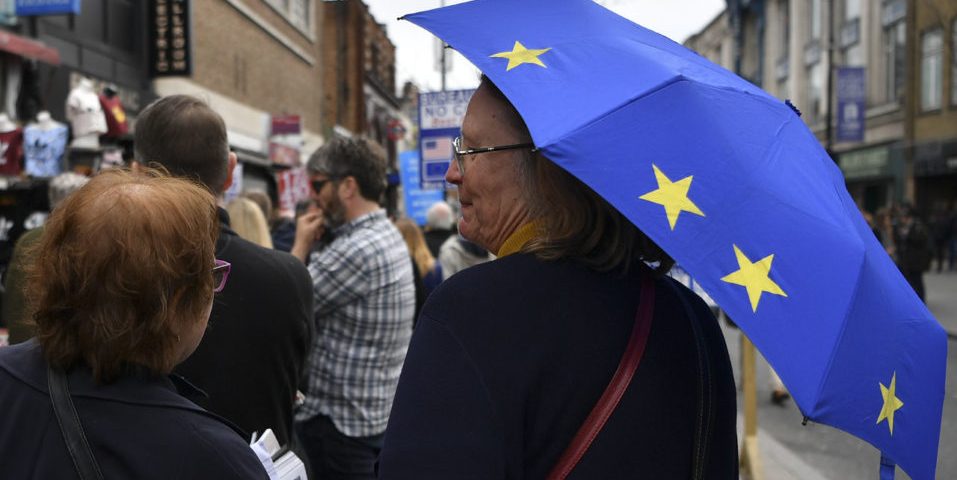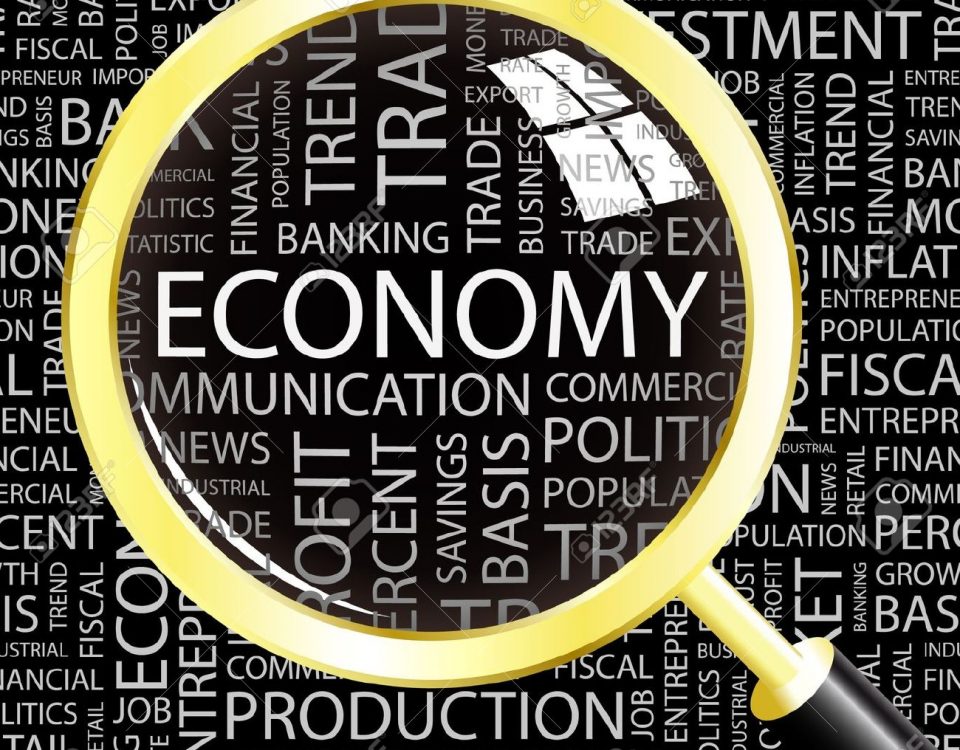World Update: May clings to power amid Brexit resignation turmoil

Nigeria Update: Firm to expend N98b on boosting local content, human capacity
July 11, 2018
Africa Update: iPhone’s Face ID May Not Recognise You in the Morning
July 11, 2018World Update: May clings to power amid Brexit resignation turmoil
A woman with an EU-flag-themed umbrella queues with others to enter the venue of a launch event for the People’s Vote campaign in London on April 15, 2018 that is calling for a referendum on the final Brexit deal. A new cross-party campaign for a referendum on Britain's EU departure deal launched on April 15, insisting the British public -- and not just politicians -- should be given a say. / AFP PHOTO / Ben STANSALL
British Prime Minister Theresa May chaired a meeting of her new-look cabinet on Tuesday as she clings to power following the resignation of her foreign and Brexit ministers in protest at her strategy for leaving the European Union.
May has faced a backlash over the plan from Brexit hardliners in her Conservative Party who say it gives too many concessions to the EU, but she has support from moderates and there has been no challenge to her leadership.
Former foreign minister Boris Johnson, who wrote in his resignation letter that the Brexit “dream is dying” and that Britain was headed for the “status of colony” of the EU under May’s leadership, is seen as a potential challenger.
Johnson’s dramatic resignation on Monday just hours after Brexit minister David Davis quit late on Sunday plunged the value of the pound on currency markets.
Rumours have swirled over possible further resignations but experts said May appeared to have weathered the crisis for now.
“My impression is that this is probably as far as it goes. I can’t see more ministers resigning,” Simon Usherwood, politics lecturer at the University of Surrey, told AFP.
The gaffe-prone Johnson was quickly replaced by 51-year-old former health minister Jeremy Hunt, who unlike Johnson supported staying in the European Union in the 2016 referendum.
Dominic Raab, a Brexit supporter and former housing minister, was appointed to replace Davis only days before negotiations in Brussels are due to resume next week.
Hunt said it was a moment to show that Britain remained a “strong, confident voice in the world”.
He said he would “stand four square behind the prime minister so that we can get through an agreement with the European Union based on what was agreed by the cabinet last week at Chequers”.
The plan agreed at May’s country retreat at Chequers would involve Britain pursuing a “UK-EU free trade area” for goods that would involve regulatory alignment with the EU.
– Brexit ‘at risk’? –
British and EU officials are hoping to strike a deal on the terms of Britain’s withdrawal and agree to a plan for future trade ties in time for an EU summit in October.
“With just weeks left to conclude negotiations on leaving the EU, this is a critical moment for the country,” the Financial Times wrote in an editorial.
“This confrontation between Brexiters and reality was long overdue,” it said, adding that May “should have faced down the hardliners before negotiations formally began”.
It said May now faces “the spectre of a leadership challenge,” but it was “possible that after a period of resignations and political blood-letting, the Conservative Party will fall behind the prime minister”.
Times columnist Rachel Sylvester said May’s authority “is utterly destroyed at the very moment she needs the credibility to assert herself in the negotiations with the EU”.
May’s Conservative opponents could trigger a confidence vote against her if at least 48 MPs support it, but to actually force her from office 159 MPs would have to vote against her — a figure hardliners may not be able to reach.
May has said she will fight off any attempt to unseat her.
Much will depend on European reactions to May’s plan and she is due to meet with German Chancellor Angela Merkel later on Tuesday at the Western Balkans Summit in London.
The Guardian newspaper quoted an unnamed Conservative MP saying the resignations would continue in protest against her plan to keep strong economic ties with the EU — dubbed the Chequers plan after her country retreat where it was agreed last week.
“They’ll keep going, one by one, until she either junks Chequers or goes,” the MP was quoted as saying.
But former Conservative leader William Hague, writing in the Daily Telegraph, said May’s critics had failed to produce “any credible alternative proposal” and warned that further resignations could put Brexit itself “at risk”.
As England prepares to face Croatia in its first World Cup semi-final in more than 20 years, however, many Britons have no time for politics.
The Sun, Britain’s most read tabloid, ran a front-page headline with a “message to warring politicians”.
“Don’t you know there’s a bloody game on?” read the headline.

